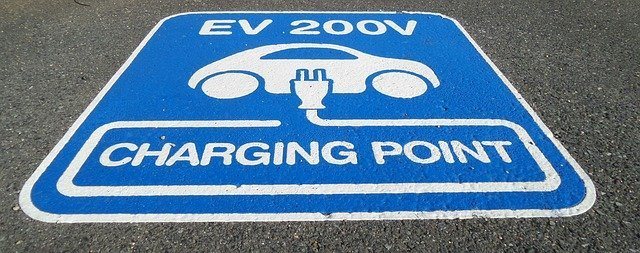There's been an increased uptake in the purchase of electric vehicles and we've covered the tax benefits previously. As a result, we'll now cover the tax treatment of electric vehicle charging points.
Tax treatment of electric vehicle charging points - VAT rules
HMRC recently published guidance about the VAT treatment of electric vehicle charging points. This is set out below:
Liability relating to charging
The supply of electric vehicle charging via a charging point in a public place is subject to VAT at the standard rate of 20%.
Therefore, the reduced rate of 5% won't apply to supplies of electric vehicle charging points in public places. Moreover, it only applies to ongoing supplies of electricity to a person’s house or building which is less than 1,000 kilowatt-hours a month.
VAT recovery for sole traders
You can claim VAT incurred when charging an electric vehicle where you are a sole trader home charging your electric vehicle for business purposes. However, you can only claim any VAT charged relating to business use of your electric vehicle.
If you're a sole trader you can also claim any VAT incurred charging your electric vehicle for business use at public places. For example, car parks and service stations. What's more, the VAT is claimed at the same rate charged on the supply of electricity. In other words, at 20% or 5% - see above.
VAT recovery for directors and employees
If you're a director/employee charging an electric vehicle used for business at your home, you can't claim the VAT. This is because the supply of electricity will have been made to the individual not the business.
Where you charge a company electric vehicle used for business and private purposes at your business premises you must records of business and private mileage. This is because it's necessary to calculate the business use proportion for the vehicle. There are two methods that can be used to reclaim the VAT.
Tax treatment of electric vehicle charging points - installation costs
Your business can claim 100% of the installation costs of an electric vehicle charging point. Moreover, qualifying expenditure can include the charging point itself plus alteration of land for installation. Additionally, it can also include any modification costs to supply electricity to the charging point.
Some of the expenditure can qualify for the super deduction equating to a 130% enhanced deduction of the total cost if incurred prior to 31 March 2023.
To qualify for the deduction, expenditure must be on a new, unused electric vehicle charging - not second hand charging facilities.
Tax treatment of electric vehicle charging points - employee usage
Where someone is provided with workplace facilities for charging an electric vehicle no taxable benefit in kind arises on the cost of providing electricity at these facilities.
The exemption covers the cost of electricity, the employer's cost of providing these facilities and any associated services. However, this is subject to the following conditions:
However, there will be a taxable benefit in kind if charging facilities are offered as part of a flexible remuneration package.
Additionally, charging facilities must be for a vehicle in which the employee is either the driver or a passenger.
An example
Mr and Mrs X work for different employers in a similar location. Therefore they take turns to drive each other to work. Mr X’s employer spends £6,000 to install charging points in their office car park.
Mrs X’s employer does not provide charging points at her workplace. When Mr X makes use of the charging facilities at his office’s car park, the benefit of the electricity used, the use of the charging point and any connected services are exempt.
On days when Mrs X drives them both, the car is parked at Mr X’s office. The use of the charging facilities remains exempt as Mr X is a passenger.
Other points
The exemption doesn't apply to the reimbursement or payment of an employee’s personal costs for charging their vehicle away from the employer’s premises. For example, it does not apply where the employer reimburses the costs of charging their vehicle at a motorway service station.
However, where electricity costs are reimbursed for charging the vehicle away from the employers premises and the vehicle is used on a business journey, it may be possible to claim a mileage allowance.
Lastly, any electricity or connected services provided by an employer for a company car or van is an exempt benefit in kind.
For more useful information, check out our Ebooks here.
And if you'd like to know how we can help you with all of this, or with anything else, feel free to give us a call on 01202 048696 or email us at [email protected].
Alternatively, please feel free to complete our Business Questionnaire here.

